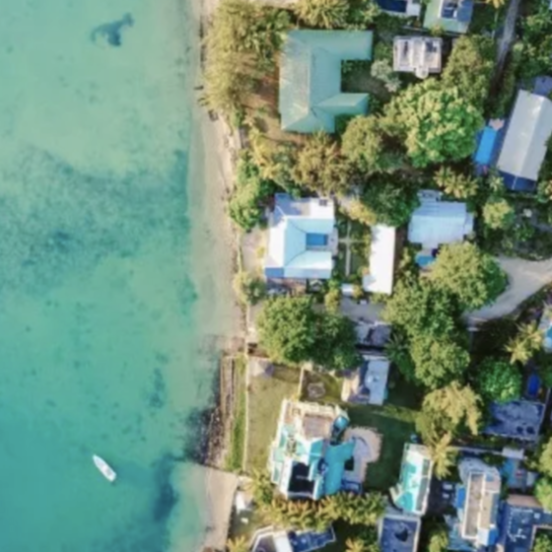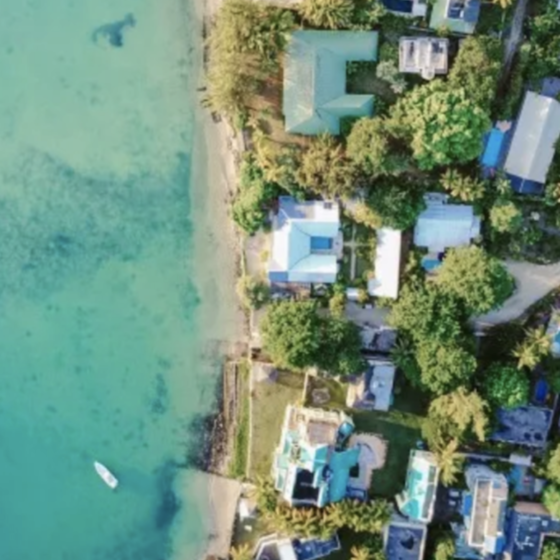Climate, Health and Equity Brief
Ailing health, sinking islands and ‘a human right’
October 18, 2021

The Climate, Health & Equity Brief is GMMB’s take on the week’s news on the current impacts of climate change. If you haven’t subscribed yet, you can do so by clicking here.
Hot Topic: Health in peril. Two weeks ahead of the United Nations Climate Change Conference (COP26) in Glasgow, three new reports have confirmed the urgent need for climate action from governments and corporations alike and are sounding the alarm for human health and wellbeing if ambitious pledges aren’t enacted fast.
First, the World Health Organization released a report warning that climate change is now the single biggest threat to public health globally, with climate-related hazards such as heatwaves, extreme storms, drought, rapidly increasing water- and food-borne illnesses and mental health crises taking an increasingly troublesome toll on the state of human health. Second, a new UN study found that water management systems worldwide are inadequate in the face of climate impacts, forecasting that five billion people will not have sufficient access to water by 2050.
Finally, a new analysis in the journal Nature has found that at least 85 percent of the global population has experienced the impacts of weather events made worse by climate change—from floods and heatwaves to crop failures—and that rising temperatures have taken a toll on at least 80 percent of the world’s landmass. These metrics likely fail to tell the whole story, however, as the same report found a significant lack of studies examining climate impacts in the Global South—particularly among African and Pacific Island nations.
And island nation communities face particular peril. At least 11 islands have already been swallowed whole by rising seas, and at least 13 more—including well-known destinations such as the Maldives, Seychelles, Cook Islands and Fiji—are on track to be submerged within the next 80 years. The threat is so severe that some island nation leaders have already initiated plans to relocate their entire populations to ensure their safety.
The UN Human Rights Council approved a first-of-its-kind resolution this week, calling access to a “safe, clean, healthy and sustainable environment” a human right. Just in time for COP26, this underscores that the climate crisis is a human rights crisis—and ambitious climate action is imperative to protect the health, safety and dignity of present and future populations.
— Matt & Traci, GMMB
Human Health
New research from the journal Nature revealed that at least 85 percent of the global population has experienced climate-fueled extreme weather, and that four-fifths of the world’s land area has suffered impacts linked to climate change. (The Washington Post)
In a new report prepared for COP26, the WHO warns that climate change is the single biggest threat to public health, urging world leaders to help address the climate crisis through significant commitments including a green recovery from COVID-19 and sustainable food systems. (CBS News)
A new study from the UN World Meteorological Organization found that water management systems worldwide are inadequate in the face of climate impacts, forecasting that five billion people will not have sufficient access to water by 2050. (AP News)
Equity
A study published by the journal Nature found that climate change studies are twice as likely to focus on impacts in wealthier countries across Europe and North America than low-income countries such as those in Africa and the Pacific Islands. (CNN)
Pacific Islanders are calling on world leaders to step up their climate commitments, as they are already experiencing severe consequences of climate change, losing some islands entirely to rising sea levels, with even more set to disappear in the coming decades. (Axios, Reader’s Digest)
The same unsustainable choices that are killing our planet are killing people.”
– Dr. Tedros Adhanom Ghebreyesus, WHO Director-General
Politics & Economy
A new report found that one in four units of critical infrastructure across the U.S.—including airports, fire stations, hospitals, police stations, ports and power stations—are at risk of being inoperable due to increasingly frequent and intense flooding fueled by climate change. (Axios)
The UN Human Rights Council voted to recognize the human right to a “safe, clean, healthy and sustainable environment” and created a new organizational role to investigate the human rights impact of climate change. (CNN)
A new NOAA report found that just 18 weather disasters in the U.S. this year have together totaled $104.8 billion in damages and caused at least 538 deaths. (Insider)
According to a new report by the International Energy Agency, fossil fuel use is expected to peak in the middle of this decade before beginning its decline, but without more aggressive action, current policies will still lead to catastrophic warming of 2.6°C (4.7°F). (The New York Times)
Action
Two dozen additional countries have joined a U.S.-and-EU-led pledge to cut methane emissions by 30 percent by 2030, with all signatories accounting for 30 percent of global methane emissions. (Reuters)
Scientists have developed a new grain that could present a solution to the climate crisis from farming, due to its perennial nature and ability to capture carbon dioxide in the air. (The Washington Post)
Kicker
Check out these interactive graphics that show how rising sea levels will impact landmarks worldwide at different temperatures of warming.
The GMMB Climate, Health & Equity Brief would not be possible without the contributions of the larger GMMB California team—Aaron Benavides, Elke Cortes, Stefana Simonetto and Sydney Lykins. Feedback on the Brief is welcome and encouraged and should be sent to CHandEBrief@gmmb.com.






